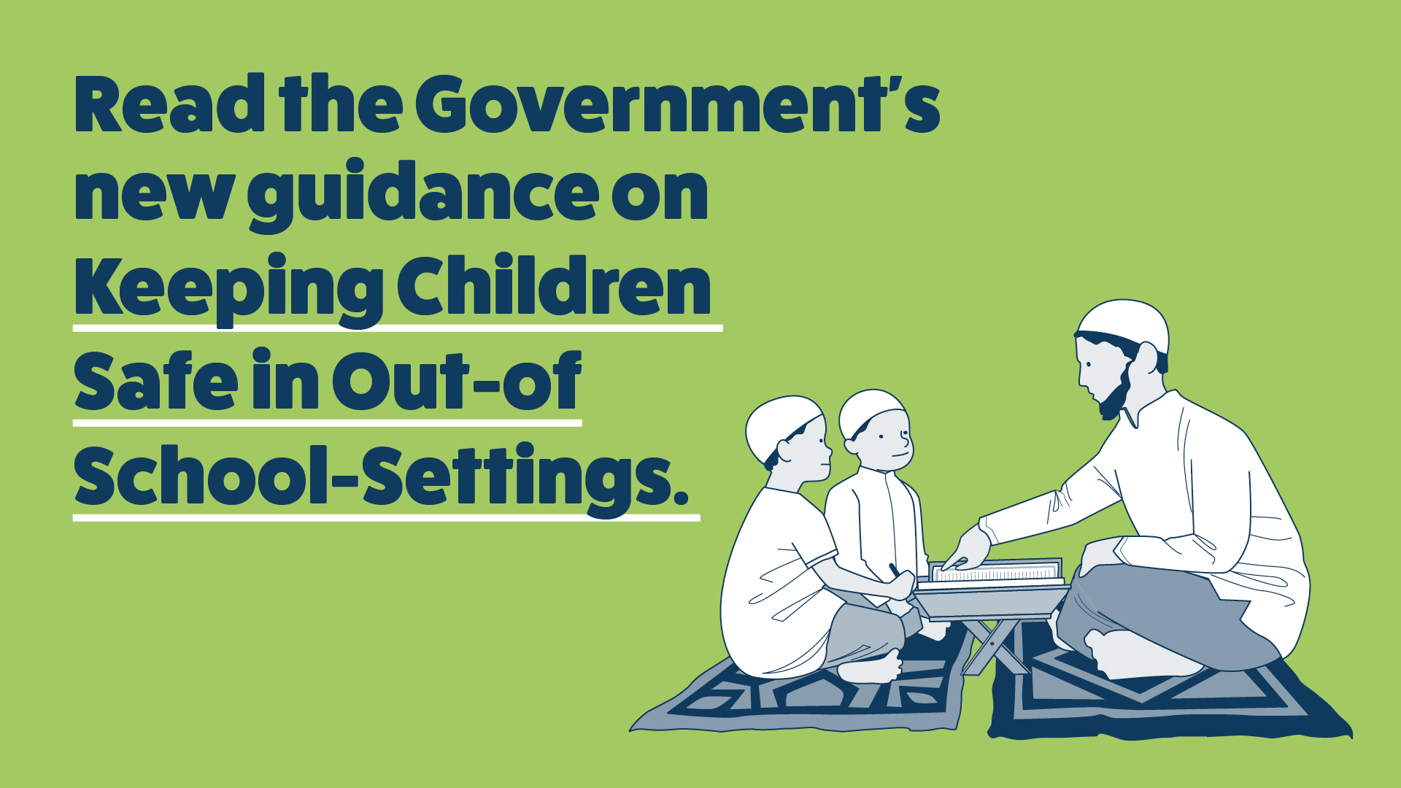
Yesterday (19 September 2023) the Department for Education published its updated safeguarding guidance for after-school clubs, community activities, and tuition providers which includes 'Christian Sunday Schools'.
In releasing the revised guidance, the government says it has been updated to ‘reflect the guidance on keeping children safe in education and new legislation such as positions of trust, as well as findings from the out-of-school settings multi-agency pilot scheme’.
Included in the scope of the updated guidance are tuition centres, extracurricular clubs, uniformed groups, youth groups, and 'religious supplementary settings'. This last group is defined as settings 'offering education in their own faith, culture, or religious texts or preparation for rites of passage, outside normal school hours e.g. Jewish yeshivas and chedarim, Muslim madrassahs, Hindu settings, Sikh settings, and Christian Sunday schools.’
The guidance also includes advice for parents who use these settings to help them be clear on what safeguarding arrangements they should expect settings to have in place.
Consistent standards for all
The Department for Education said “Most children attend some form of out-of school setting – for example, sports clubs, youth clubs, or private tuition. We want to ensure these settings are fun and safe places for all children. Having a set of consistent safeguarding standards that all settings can follow is an important way of achieving this. That is why we have updated our Keeping Children Safe in Out-of-School settings guidance to ensure it remains relevant, informative, and actionable for all types of out-of-school settings.”
Thirtyone:eight have been active over several years in calling for the advice to be updated to better reflect the variety and breadth of activities undertaken by churches and faith-based groups, though our participation in the government’s Out-Of-School Settings (OOSS) Safeguarding Steering group.
Limited references to faith
Leigh McFarlane, Thirtyone:eight’s Public Policy and Research Manager, who has been responding to the government on this update said “This important guidance has been due for an overhaul for some time, and we have been working with the government to advise on what should be amended and included. The updated guidance contains some improvements such as a more user-friendly format, a version for parents, and a clearer explanation of the type of settings it applies to, which are all positive developments. It is also good that the government acknowledges that whilst designed for England the guidance may help providers elsewhere in the UK.”
“However, it is disappointing that despite feedback the update contains limited references to the faith sector, and there are still areas where information is too vague and gives insufficient clarity on how parents/providers will know these documents exist. The guidance does not include the voices of young people in any way, unlike recent work in other UK jurisdictions where young people's voices have been included and heard by government, which has brought about significant and positive differences to the outcomes of updated guidance.
The use of terminology such as ‘Christian Sunday schools’ also adds to the lack of clarity about what is intended to be in the scope of this guidance e.g. Christian youth groups, parent and toddler groups etc.”
The guidance, which was originally published in October 2020, covers advice on what policies and procedures providers should have in place for health and safety, safeguarding and child protection, staff suitability, and governance.
Organisations with an active membership with Thirtyone:eight get access to guidance and advice on all aspects of safeguarding along with the tools and resources needed to implement them effectively, such as training, DBS checks, Safeguarding Helpline, and our online safeguarding resources and knowledge hub.
McFarlane continues “As long as the information contained in these documents remains as guidance only and therefore doesn’t have to be followed, we would query how much these documents will in reality contribute to keeping people safe, as the people who always strive to keep children safe will embrace them, but it is those who are not aware of these documents, or who choose not to comply who facilitate higher risk environments.”
Justin Humphreys, joint-CEO at Thirtyone:eight said “For any settings working with young people and vulnerable adults, having clear standards and guidance around what is expected in regard to safeguarding is really important. We will continue to advocate for change in this important area and contribute our knowledge and experience of working with churches and faith-based organisations for over 45 years to support the ongoing development of guidance and legislation to ensure more children are kept safe from harm and abuse.”
The updated guidance for providers can be viewed here: www.gov.uk/government/publications/keeping-children-safe-in-out-of-school-settings-code-of-practice
The advice for parents can be viewed here: www.gov.uk/government/publications/guidance-for-parents-and-carers-on-safeguarding-children-in-out-of-school-settings gov.uk
